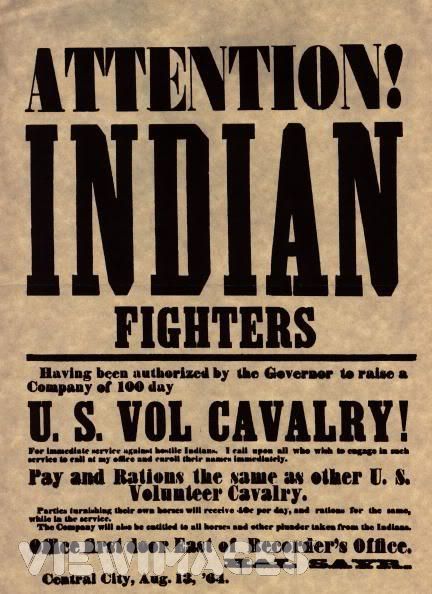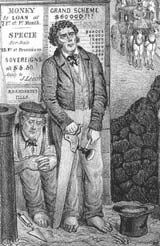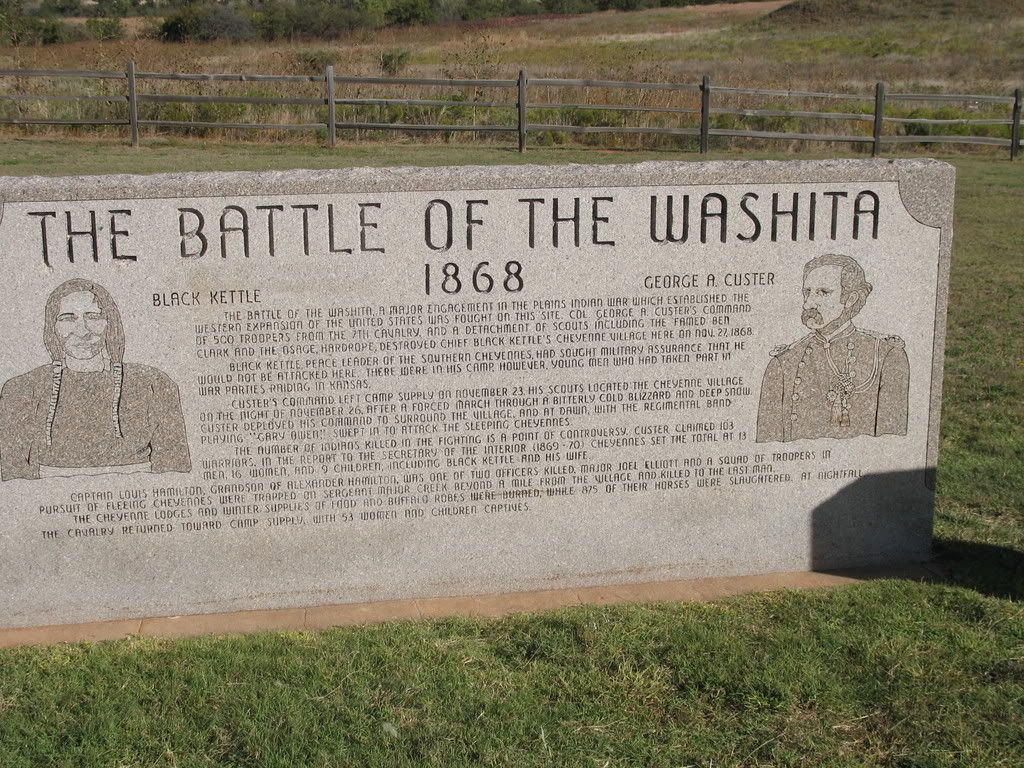Martin Van Buren was better at acquiring presidential power than using it for himself. Van Buren was elected president in 1836, but he saw financial problems beginning even before he entered the White House.
Tag: history
Feb 03 2008
The Panic of 1837, Climate Change, & Hoping for Peace
Jan 28 2008
Ancient Persia
There are two kinds of history going on in the Cave of the Moonbat tonight: that of an ancient Southwest Asian superpower, and the historiography of historioranting itself. I’ve been doing this pretty-much-weekly history thing for nigh on two years, and with my impending anniversary, I figured now’s as good a time as any to go back into the scrolls and update some of those first History for Kossacks – the ones that didn’t have any pictures (nor, for that matter, many commenters), were less than half as long as a contemporary HfK, and predate even the word I now use to describe the manner in which I seek to tell tales of the human experience.
So join me, if you will, for a redux of the very first HfK series – a proto-historiorant on Persia, land of the Aryans, now updated to fit the format that evolved in its wake. In addition to new maps, pics, and stage-setting for the impending Islamic invasion in Part II, it never hurts to take a refresher on a land whose history seems to include every major historical figure in the ancient Middle Eastern world, from Alexander to Zoroaster.
Jan 28 2008
Why doesn’t being wrong count?
It seems that I’m (unfortunately?) old enough to have a memory. And unlike most Americans, who live in what Gore Vidal likes to call the United States of Amnesia, I can remember what politicians said and did, and what the outcomes were.
Throughout my lifetime, politicians who were correct about things generally are not remembered fondly, and they were often not victorious in the next election. Whereas the people who were wrong about almost everything keep getting more Friedman units from the voters, as if we just know they’ll someday get it right.
It seems being correct counts for nothing! We keep electing people who, if they’re intellectually honest, have to constantly apologize for all their wrongheaded ideas and their votes for things that didn’t come close to producing the promised outcome. Or if they’re sociopaths like Dick Cheney, they just deny that they said what you clearly heard them say. Or they deny the actual outcome, by producing phony measurements (aided by the “think tanks” like the American Enterprise Institute, whose goal it is to produce phony measurements while sounding “academic.”)
A scientist would never accept these kinds of results! In a scientific world view, correct predictions are the most important currency, and incorrect predictions are how you figure out what (theory) not to trust. Of course science doesn’t deal with broken campaign promises, but one would assume that would count against the politician who made them and didn’t keep them.
How can democracy be so screwed up?
Some (few) examples below.
Jan 20 2008
Peace History – This Past Week
Below you will find abit about the History of this Planet that makes for such a turbulent World to live in, from one of the many sites, found on the web and before that, and still, in the many history books written to supposedly help us humans remember and not repeat the failed policies and actions of the past.
These track the importance of what man does, the failures and the recognition, leading to the actions, or lack of, of many trying to right the wrongs to bring about a better World to exist in and leave a better World for those that follow.
We Fail Miserably in the study of the past, as we repeat the wrongs, more than the rights, over and over, while creating more wrongs!
Jan 07 2008
Syphilis
Some diseases are worth bragging about – how many times, after all, have we heard Denny Crane blame something or another on his Mad Cow, or seen Peter Griffin utilize a bizarre ailment to justify even more bizarrely cartoonish behavior? In non-tropical circles, certain maladies are conversation stoppers; it’s tough not to ask a follow-up question when someone tells you she was once afflicted with break-bone fever, nor to listen without morbid curiosity to someone telling a story of having a brush with African sleeping sickness.
There are other diagnoses, though, that we tend to keep to ourselves – and some these might be appropriate for an historiorant coming the week after many a misspent New Year’s Eve. Join me, if you will, in the Cave of the Moonbat, where tonight we’ll take a look at the odd story of one such affliction-that-must-not-be-named. Ladies and gentlemen, an STD that’s changed world history… Syphilis!
Dec 31 2007
Project Acoustic Kitty
The kids in my classroom don’t remember the Cold War, most of them having been born after the fall of the Berlin Wall. The only enemy they’ve ever known are a few tens of thousands of religious fanatics; they don’t remember the days when entire nation-states aimed nuclear missiles at one another in pursuit of foreign policy goals that extended past the 24-hour news cycle. This makes it hard to explain that the threat posed by the Soviet bloc was the type that could cause a country to do some pretty extreme things to “protect” itself – not that it rose to the sort of “terrorists made me do it” waterboarding that we see today, but back in the heady days of the Iron Curtain, for example, the thought of surgically implanting a live cat with eavesdropping equipment wasn’t considered outside the realm of ethical behavior.
Join me, if you will, in the Cave of the Moonbat, where tonight we’ll take a short romp through the CIA’s litter box of secrets. Among the “presents” we’ll unearth: a Frankensteinish feline, paranoia-induced stupidity not equaled until recent times, and $20 million turd of an idea.
Dec 28 2007
117th Anniversary of the Wounded Knee Massacre
The Sand Creek Massacre and the Washita Massacre both led to the Wounded Knee Massacre. The Sand Creek Massacre brought the realization that “the soldiers were destroying everything Cheyenne – the land, the buffalo, and the people themselves,” and the Washita Massacre added even more genocidal evidence to those facts. The Sand Creek Massacre caused the Cheyenne to put away their old grievances with the Sioux and join them in defending their lives against the U.S. extermination policy. The Washita Massacre did that even more so. After putting the Wounded Knee Massacre briefly into historical perspective, we’ll focus solely on the Wounded Knee Massacre itself for the 117th Anniversary of the Wounded Knee Massacre.
Dec 24 2007
Right-Wing War on Christmas Vets: Why They Fight
Among the mouth-breathingest of mouth-breathing Republicans, it’s a well-known fact that every November or so, we libruls gather in our covens and plot the paganization of Christmas. In theirLeft Behind-style fantasies, we are the legions of Satan, come upon the Earth to foist secular ideas and Godless traditions upon the flock of the Lamb. They claim that only the Bible stands in defense of the faithful against the pernicious attacks of the heathen First Amendment, and that we will not be satisfied until we have, Egyptian-like, eradicated every trace of monotheism from our once-God-fearing civilization. Each year, the scarred veterans of the (self-)Right(eous) stir their zealots to action, and in public squares and mangers throughout the land, battles over the soul of American culture are waged.
As in all wars, sometimes an enemy’s gallantry on the field of battle impresses even a bitter foe – Napoleon, remarking on the Russian cavalry then crashing into his lines, said “Now these are Kossacks!” – and it’s in this spirit that Brandon Friedman suggested we take a moment to cite the valor of our opposition. Others (links below) have done a great job “honoring” individual wingnut actions – now join me, if you will, in the Cave of the Moonbat, where we’ll take a look at what, exactly, they’re fighting for.
Dec 17 2007
A Pharaohship to Forget
He thought he knew better than his people; thought he could, through sheer force of will, change a public mindset centuries in the making. He was an iconoclast (literally) 2000 years before the term would be coined by medieval Byzantines, but within a couple of decades after his rule, the enemies he’d created had obliterated nearly every trace of his reign, as well as the monotheistic religion he had promulgated as a state faith. A victim of an histoicide of staggering proportions, his name was virtually excised from the public record, his monuments altered and defaced, and he was forgotten for almost three millennia.
Join me, if you will, in the Cave of the Moonbat, where tonight we’ll take a look at the sort of thing that would cause a civilization to try to erase one of its own leaders from history. With all the talk of Romney’s misunderstanding of the nature of freedom and religion in America, not to mention the ongoing historical embarrassment that is the Bush Administration, it only seems appropriate. It’s not meant, however, to assert that either the clearly-megalomaniacal President, or his would-be successor is the mental or spiritual equal of the thoroughly remarkable “heretic pharaoh” Amenhotep IV, who called himself “Akhenaton” and whom history sometimes terms the world’s “first individual.”
Dec 03 2007
Starting a Great War
Historical analogies that rely for strength upon generally-held assumptions – often exemplified by a folksy appeal to authority in the form of the phrase, “they say” – carry with them both advantage and disadvantage. The recognition of human nature (“power tends to corrupt…”) does make for convenient shorthand, but as with all generalizations, these little chestnuts also run the risk of imprecision when the discussion goes beyond the super-broad. “They” say, for example, that those who fail to learn from the mistakes of the past are doomed to repeat them, which for an historioranter raises a few interesting questions: What if the circumstances of the times have few, if any, precedent? What if leaders of narrow vision had at their disposal technology that could kill on a scale that had theretofore been unimaginable? What if ideology replaced common sense as a guiding political force?
Join me, if you will, in the Cave of the Moonbat, where tonight we’ll look at the origins of the last war to be called “Great.” Along the way, we’ll encounter nations which based policy around the concept of their peoples’ historical destiny, some guys with great facial hair, and analogies that may fall apart on the micro scale, but get damn scary when looked at through a wider-angle lens.
Nov 29 2007
143rd Anniversary of the Sand Creek Massacre of Nov. 29th, 1864

http://images.google.com/image…
Chief Black Kettle:I want you to give all these chiefs of the soldiers here to understand that we are for peace, and that we have made peace, that we may not be mistaken by them for enemies.
A Cheyenne cemetery is in the same direction as where my mother told me she watched gypsies camp through her west window as a girl, about ½ mile from that house. I have reverently walked though that Cheyenne cemetery as early as ten, looking at the headstones and wondering who they were and where they came from. I did not know then, that in that cemetery were descendants from the Sand Creek Massacre.
Nov 27 2007
The 139th Anniversary of the Washita Massacre of Nov. 27, 1868
The intent to commit genocide at Washita is hidden in plain view, unless key elements are brought together. These are: that the Cheyenne were placed on land where they would starve while promises to avert starvation were broken; that George Bent observed how Civil War soldiers did not harm white women and children by a “code of honor,” while Indian women and children were slaughtered; that Sheridan declared “The only good Indians I ever saw were dead;” and that the War Department did not differentiate between peaceful and warring Indians. Hence, the orders “to kill or hang all warriors.” As the consequence, the intent was to kill all men
of a specific race.
We’ll begin with Custer prior to the Washita Massacre along with the fact that the Cheyenne were forced onto land wherein they would starve.




